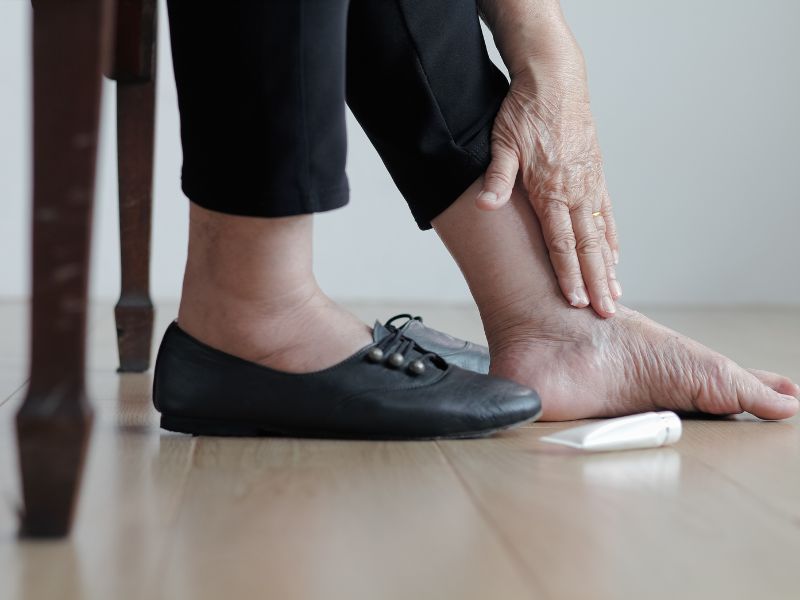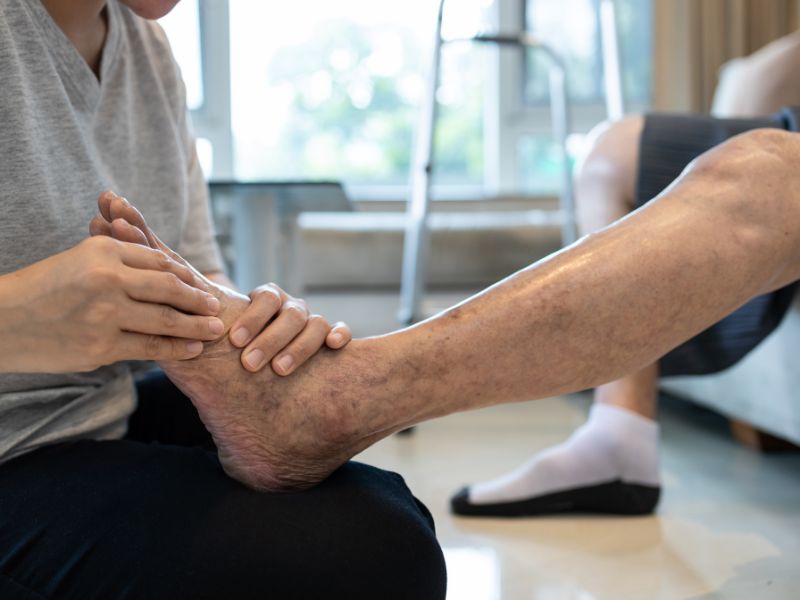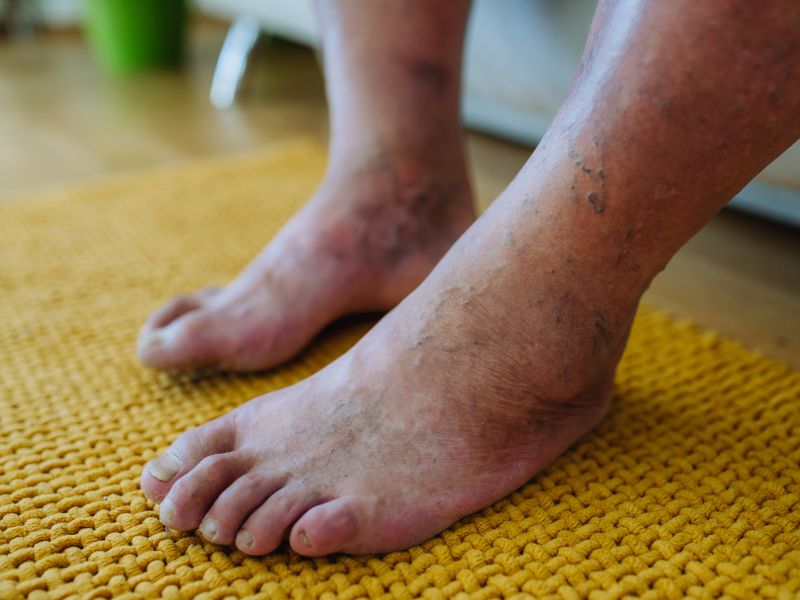Diabetes is a chronic condition that affects millions of people worldwide. One of the most concerning complications of diabetes is the development of diabetic foot, a condition characterized by a range of foot-related problems that can lead to severe consequences if not properly managed. Understanding the impact of diabetes on the feet is crucial for both patients and healthcare professionals.

Canva. com
The Effects Of Diabetes On The Feet
Diabetes can lead to various foot-related complications due to its impact on blood circulation and nerve function. High blood sugar levels over time can cause damage to blood vessels and nerves in the extremities, particularly the feet. It can result in poor blood flow and reduced sensation, making the feet more susceptible to injuries and infections.
Common Complications
- Neuropathy: Diabetic neuropathy is a condition where nerve damage occurs, leading to reduced foot sensation. It can result in an inability to feel pain, heat, or cold, making it challenging to notice injuries or infections.
- Peripheral Arterial Disease (PAD): Diabetes can lead to the narrowing of blood vessels, reducing blood flow to the extremities. It can result in poor wound healing and increase the risk of foot ulcers.
- Foot Ulcers: Due to reduced sensation and compromised blood flow, even minor injuries or pressure points can lead to the formation of ulcers. Without proper care, these ulcers can become infected, leading to more severe complications.
- Charcot Foot: This condition is characterized by weakened bones in the foot, often occurring in individuals with neuropathy. The weakened bones can lead to deformities and instability.

Canva. com
Charting A Course For Prevention And Management
Preventing and managing diabetic foot complications requires a multidisciplinary approach involving patients, healthcare providers, and specialists. Regular foot exams, maintaining optimal blood sugar levels, and adopting a healthy lifestyle are key prevention components. Educating patients on the significance of proper foot care, which encompasses conducting daily inspections, moisturizing, and wearing well-fitting, comfortable shoes, is essential. Seeking prompt medical attention for foot issues is crucial to prevent them from escalating into more severe complications.
